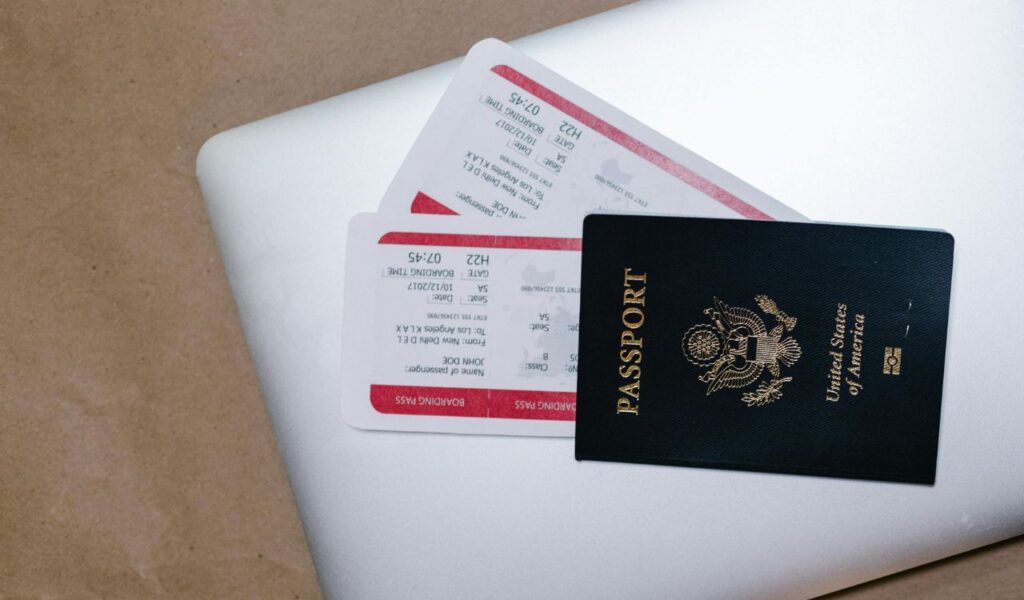We may earn money or products from the companies mentioned in this post. This means if you click on the link and purchase the item, I will receive a small commission at no extra cost to you ... you're just helping re-supply our family's travel fund.

Retirement is your time to relax, explore, and enjoy life—but that doesn’t mean you need to drain your savings to do it. With the right planning and a little creativity, it’s entirely possible to travel frequently and comfortably without financial stress. These 13 practical strategies will help you stretch your dollars further while still creating unforgettable experiences across the globe.
Create a Smart Travel Budget

Before booking anything, start by mapping out a realistic travel budget. Experts suggest setting aside 5% to 10% of your annual retirement income for travel, but adjust based on your lifestyle and priorities. Use budgeting apps or frameworks like the 50/30/20 rule to manage travel costs within your overall retirement plan. With a well-defined budget, you can travel with peace of mind, knowing that your adventures won’t put a strain on your financial future.
Book in Advance and Travel Off-Season

Advance booking almost always leads to better deals—especially for flights, cruises, and accommodations. Pair this with off-season travel to avoid the high costs and crowds of peak times. Many destinations offer steep discounts outside of holidays and school breaks. Not only will you save money, but you’ll also enjoy quieter attractions and a more authentic experience, allowing you to truly unwind and enjoy the journey without the chaos.
Use Travel Rewards and Loyalty Programs

Take full advantage of credit card points and loyalty programs to reduce or even eliminate travel expenses. Many retirees use cards like Chase Sapphire Preferred or Capital One Venture to earn points on everyday purchases. Airline miles and hotel loyalty rewards can cover flights, rooms, or even upgrades. With a little research and strategic use of sign-up bonuses, you could unlock free or heavily discounted travel opportunities multiple times a year.
Stay Longer in One Place

Slow travel isn’t just relaxing—it’s frugal, too. When you stay in one destination for an extended period, you can often take advantage of discounts for weekly or monthly rentals on platforms like Airbnb. Longer stays mean fewer travel days (and costs), less stress, and more time to explore at your leisure. You’ll also have the chance to live like a local, discover hidden gems, and establish a routine that’s both enriching and affordable.
Cook Your Own Meals

Dining out daily adds up quickly. One of the easiest ways to cut costs while traveling is to prepare your own meals. Choose accommodations with kitchens or kitchenettes and stock up at local markets. Cooking gives you control over your diet, keeps you healthy, and offers a cultural experience as you try local ingredients. Even simple meals and snacks can offset pricey restaurant tabs, allowing you to splurge selectively without guilt.
Consider Housesitting or Visiting Friends

Accommodation is often the biggest travel expense, but it doesn’t have to be. Housesitting through platforms like TrustedHousesitters lets you stay in lovely homes for free in exchange for basic caretaking. Alternatively, visiting friends and family can offer both cost savings and meaningful time with loved ones. Many retirees find this a rewarding way to travel, deepen relationships, and enjoy home comforts without the price tag of hotels.
Use Public Transportation (or Just Walk)

Skip the rental cars and taxis—public transportation is not only cheaper but often more convenient. In cities around the world, buses, subways, and trains are reliable and inexpensive ways to get around. Many areas also have well-designed walkable zones. Walking allows you to explore at your own pace, discover hidden spots, and stay active. For retirees with the time to spare, it’s a budget-friendly and health-conscious travel strategy.
Take Free Walking Tours

Many cities offer free or tip-based walking tours led by passionate locals. These tours provide great insight into the history and culture of a place while saving you money. Apps like GuruWalk and Free Tour offer options in dozens of cities worldwide. Guides often share insider tips on where to eat, shop, or visit on a budget. It’s an enriching way to connect with a destination, support locals, and avoid pricey tour packages.
Choose Budget-Friendly Destinations

Not all destinations are created equal when it comes to cost. Some places—like Thailand, Mexico, and parts of Eastern Europe—offer incredible experiences at a fraction of the price of tourist hotspots like Paris or New York. Research the cost of living, currency exchange rates, and local prices before you travel. Opting for less expensive destinations allows you to stretch your travel funds further and explore more without financial worry.
Travel Overnight

When traveling between cities or regions, consider overnight transportation. Taking a night train or bus not only gets you to your next destination but also saves you a night’s lodging. It’s an especially great option in countries with reliable rail networks. While it might not be five-star sleeping, many overnight buses and trains now offer reclining seats and Wi-Fi. If you’re flexible, this can be a highly efficient and economical travel solution.
Use Reusables and Avoid Small Expenses

Bring along a reusable water bottle, travel mug, and even utensils. These small items can help you avoid the frequent—and costly—purchases of bottled drinks, snacks, and coffee. In many places, you can refill water bottles for free or get discounts for bringing your own cup. Over a multi-week trip, these savings add up. Plus, traveling with reusables supports sustainability and reduces plastic waste, making your journey eco-friendly.
Rent Out Your Home While You’re Away

Don’t let your home sit idle while you travel. Renting it out—either short-term through platforms like Airbnb or long-term to a tenant—can generate passive income that funds your trip. Many retirees find peace of mind knowing their home is being looked after and producing income at the same time. Just make sure to follow local rental laws and, if needed, hire someone to manage logistics while you’re away enjoying the world.
Volunteer or Work Abroad

Looking for deeper purpose in your travels? Volunteering or working abroad can be a powerful way to explore while keeping costs low. Teach English, assist on farms, or join service programs that provide food and lodging in exchange for your time. Sites like Workaway or Road Scholar offer structured programs geared toward older adults. It’s a fulfilling, frugal way to travel while giving back and immersing yourself in new cultures.